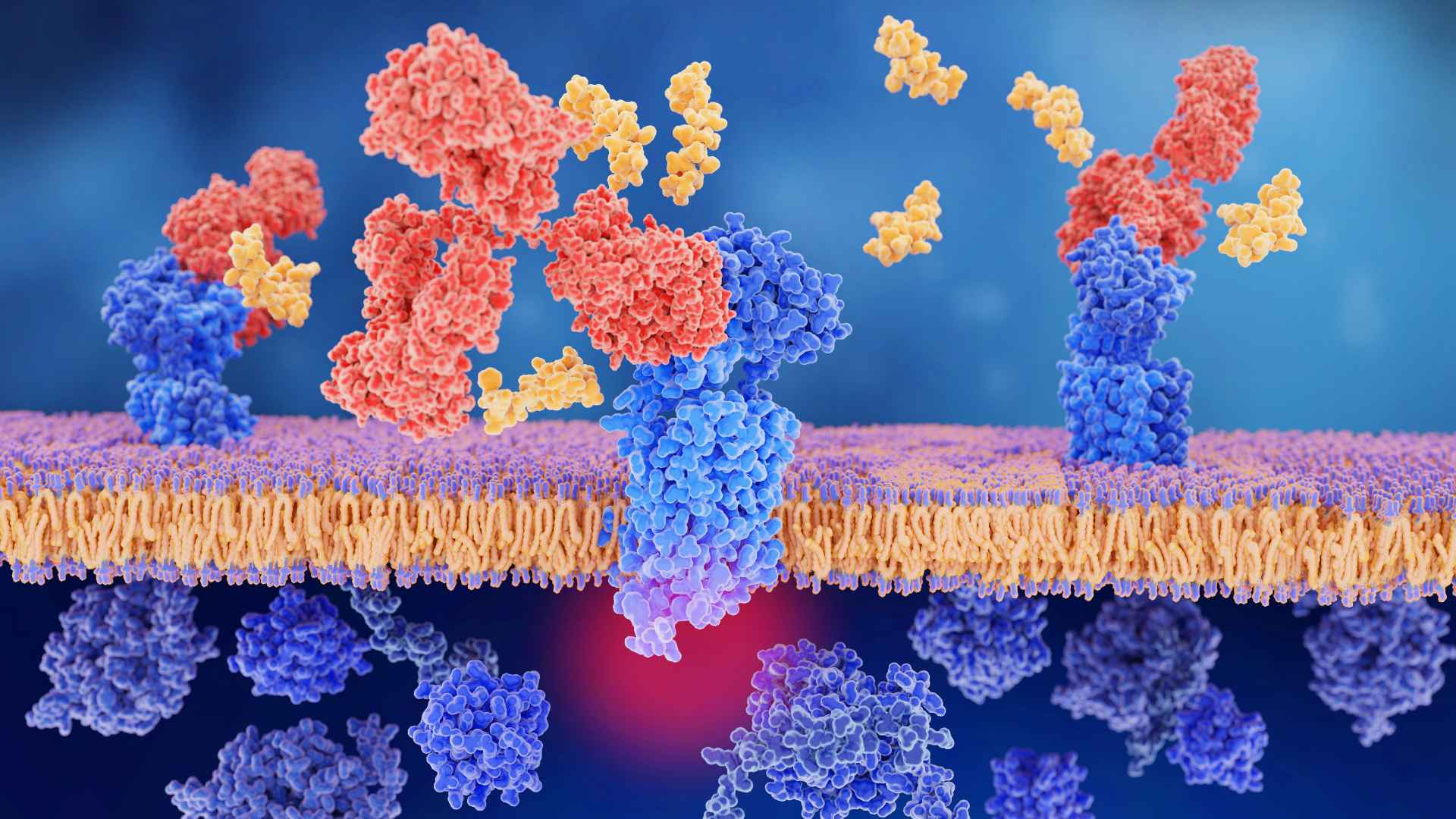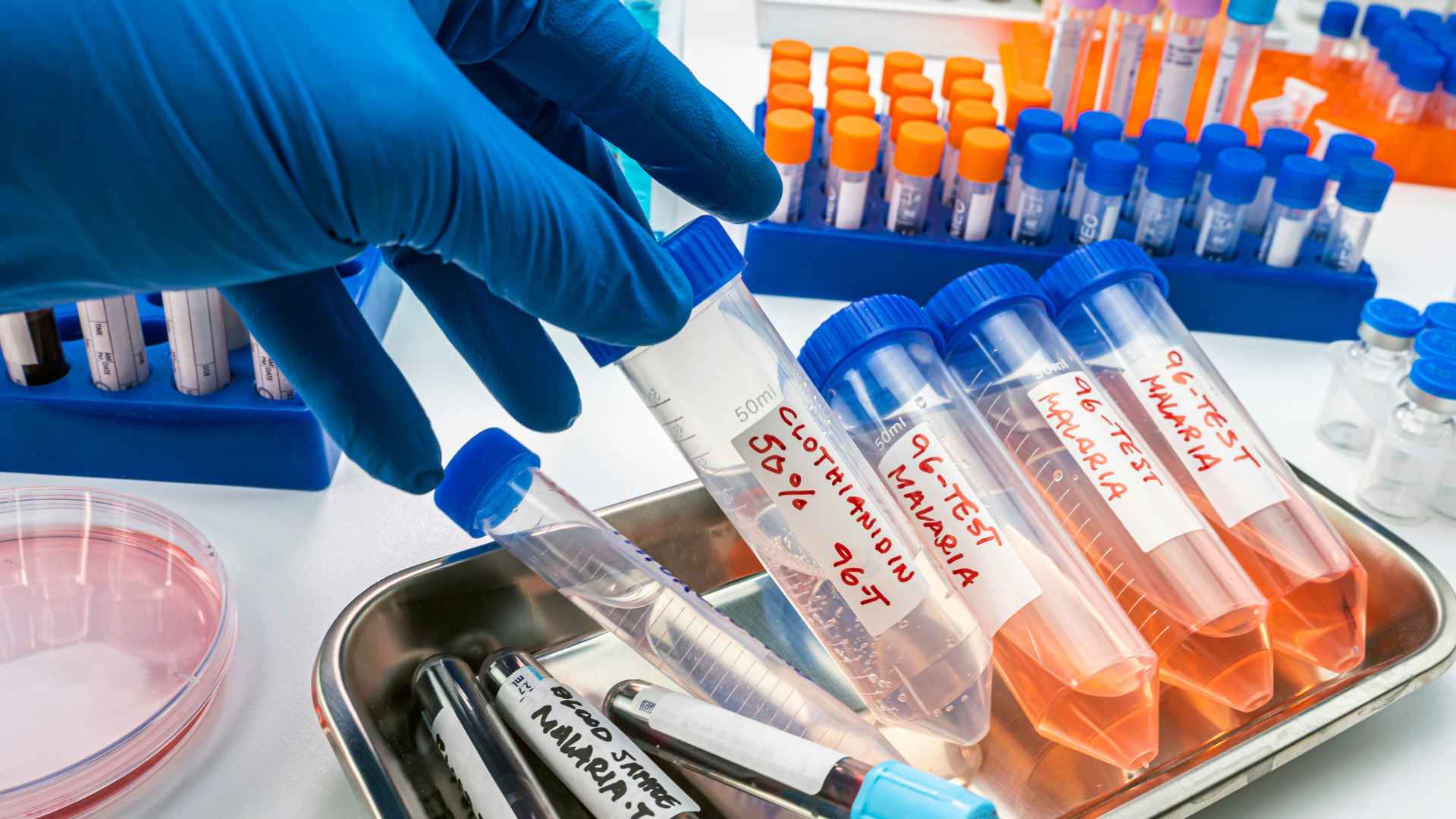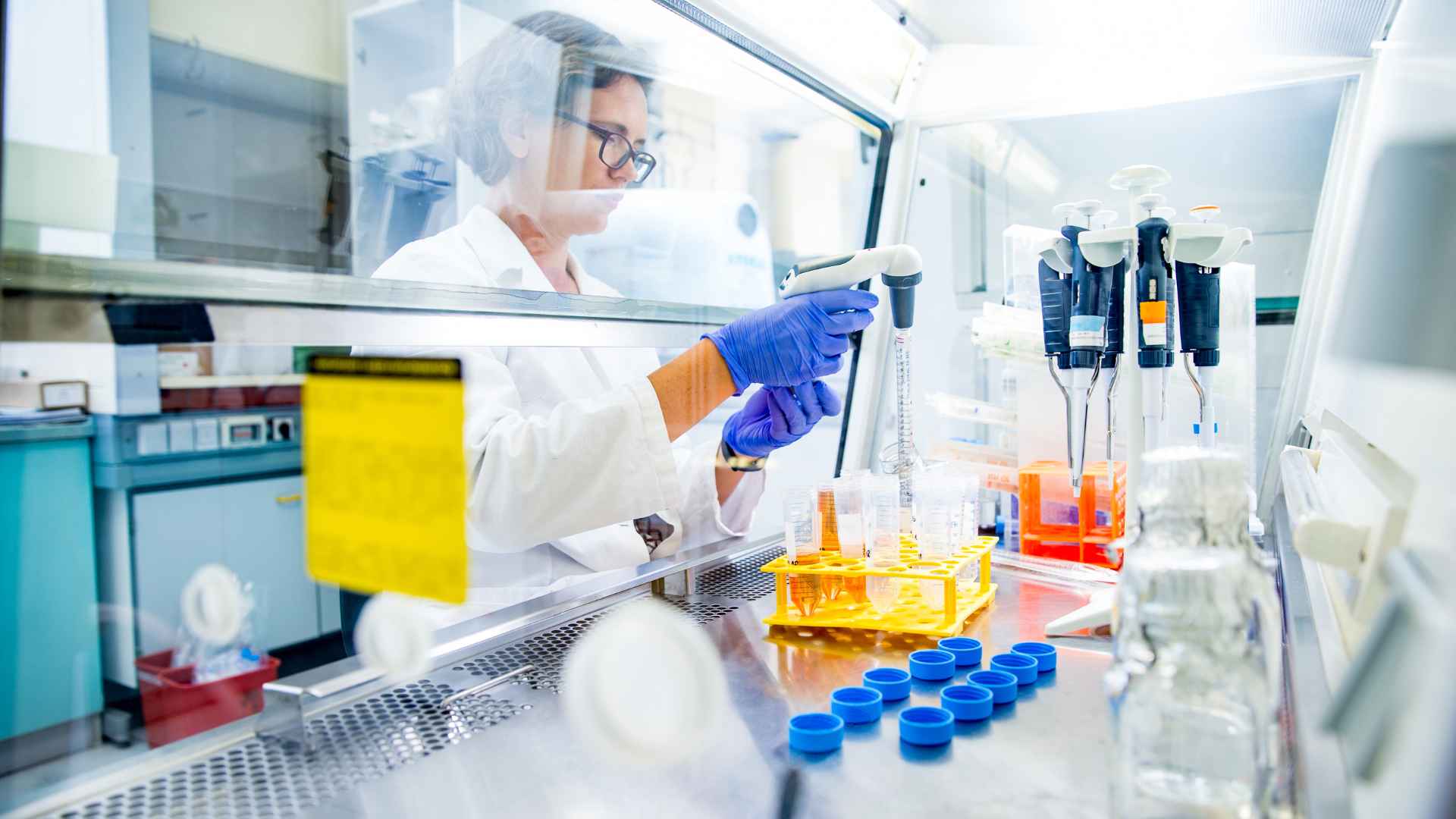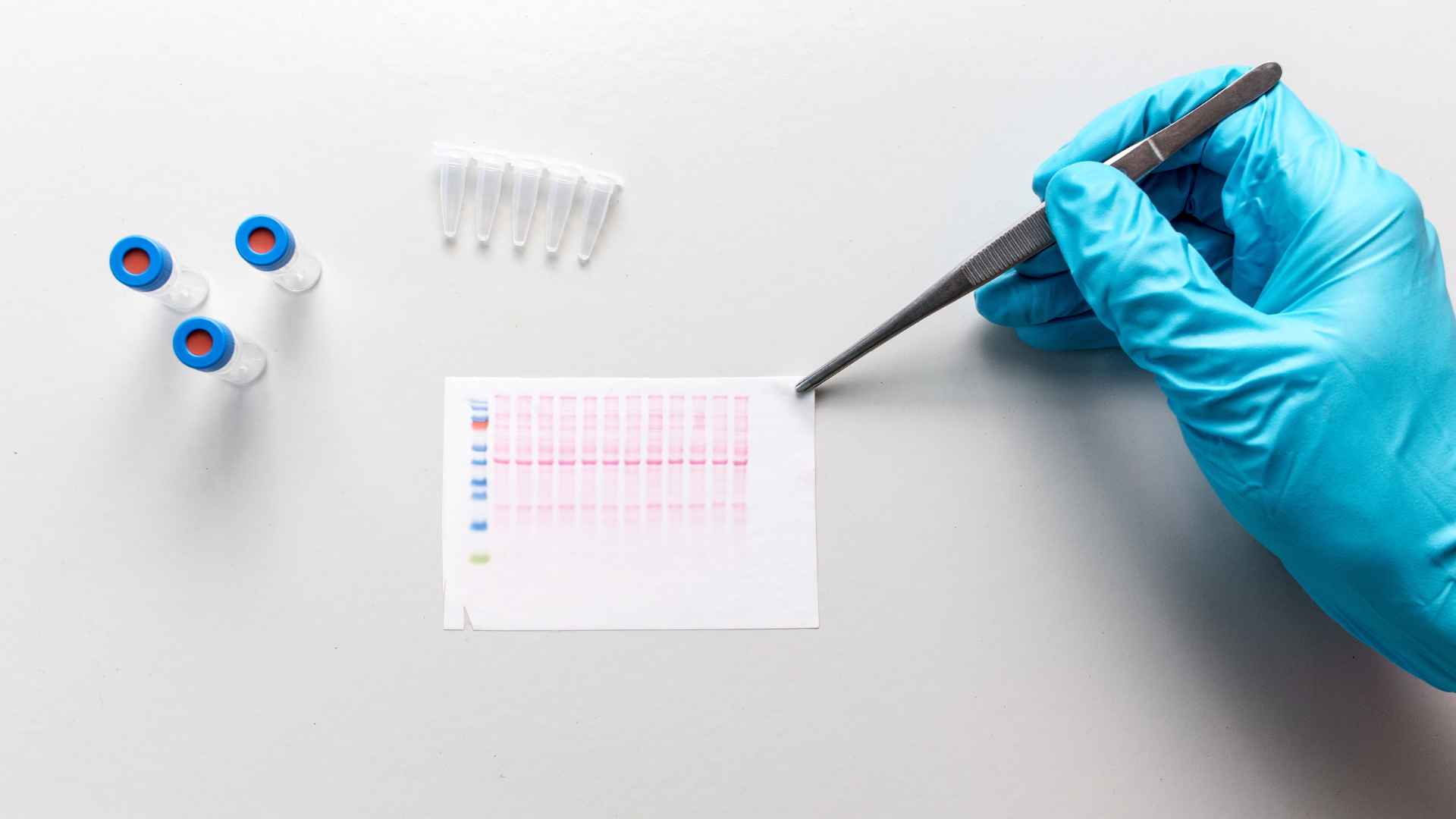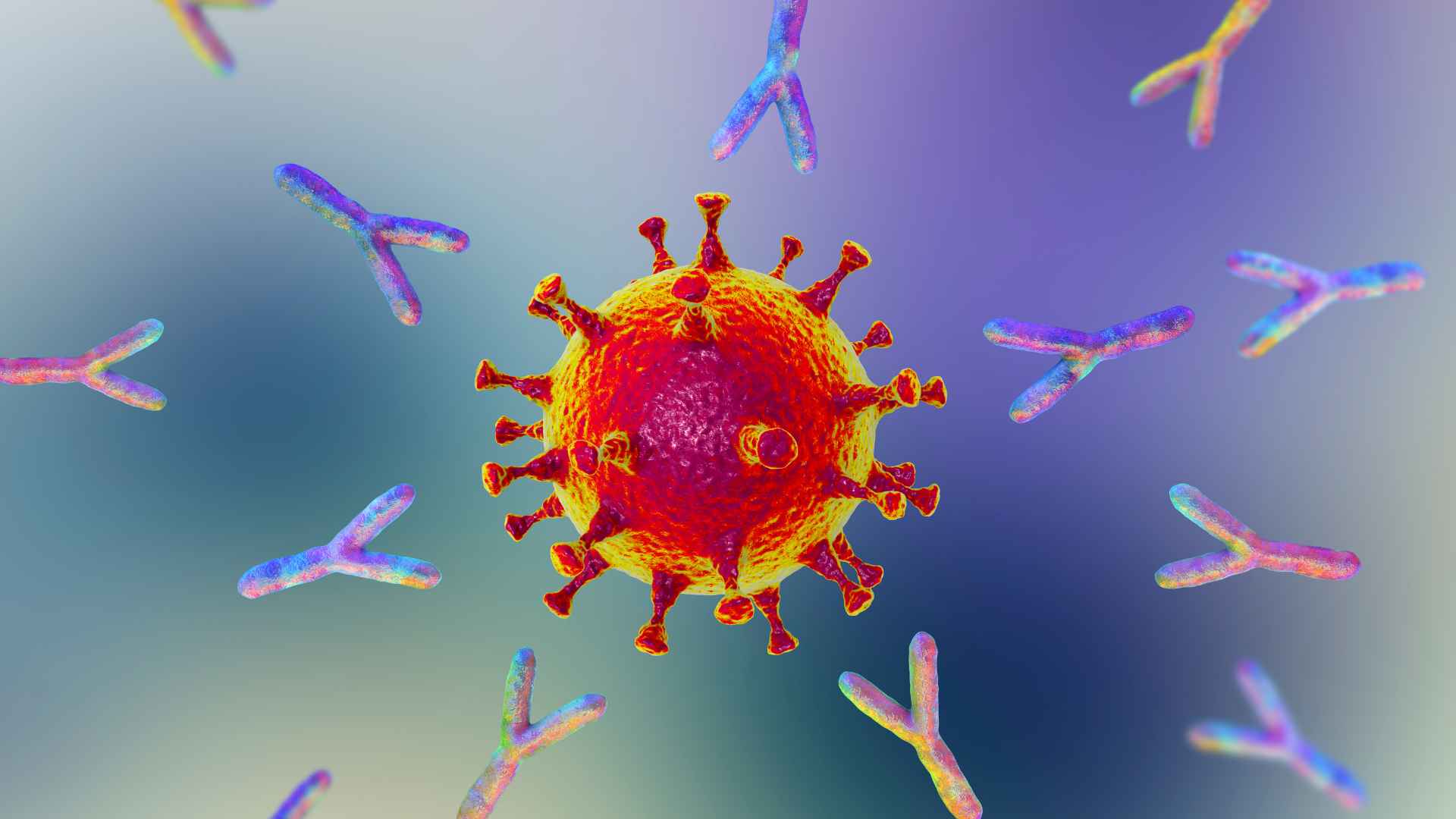At Da-Ta Biotech, we understand the critical role peptide detection plays in the biotechnology industry. Peptides are short chains of amino acids that can serve as biomarkers, therapeutic agents, and tools for drug discovery. Our goal is to provide researchers with reliable and accurate peptide detection services that can drive their projects forward. Utilizing state-of-the-art technologies, we offer comprehensive solutions that cover everything from initial sample preparation to detailed data analysis.
Whether you’re working on drug discovery, biomarker identification, or therapeutic development, our team of experienced R&D experts, led by Dr. Rinat Borenshtain-Koreh, is here to support you every step of the way. Let’s explore how our peptide detection services can benefit your research.
How Does Peptide Detection Work?
Peptide detection is a critical process in the biotechnology industry, allowing us to identify and quantify peptides accurately. But how exactly does this complex process work?
At its core, peptide detection involves breaking down proteins into smaller peptides, which are easier to analyze. This is usually done through a process called enzymatic digestion, where specific enzymes cut proteins at known sites, producing a mixture of peptides. Once we have these peptides, they need to be separated and identified.
One of the primary techniques we use for peptide detection is mass spectrometry. Mass spectrometry measures the mass-to-charge ratio of peptide ions, allowing us to determine their molecular weight and structure. When combined with liquid chromatography, which separates peptides based on their chemical properties, we can achieve a high level of accuracy in identifying and quantifying the peptides present in a sample.
In liquid chromatography, the peptide mixture is passed through a column filled with a stationary phase material. Peptides interact with this material differently, causing them to elute from the column at different times. This separation process is crucial because it simplifies the complex mixture, making it easier to analyze each peptide individually.
After separation, peptides are introduced into the mass spectrometer. Inside the mass spectrometer, peptides are ionized, typically using electrospray ionization (ESI) or matrix-assisted laser desorption/ionization (MALDI). These ionized peptides are then accelerated into a mass analyzer, which sorts them based on their mass-to-charge ratio. The resulting data is a spectrum that represents the peptides in the sample.
We then use bioinformatics tools to interpret these spectra. By comparing the detected peptide masses with theoretical masses from protein databases, we can identify the proteins from which these peptides originated. This process, known as peptide mass fingerprinting, enables us to infer the identity and abundance of proteins in the original sample.
Overall, peptide detection combines advanced techniques and technologies to provide detailed insights into the protein composition of biological samples. This information is invaluable for applications such as drug discovery, biomarker identification, and therapeutic development. By understanding how peptide detection works, we can better appreciate its role in advancing biotechnological research and development.
What Technologies Does Da-Ta Biotech Use for Peptide Detection?
At Da-Ta Biotech, we pride ourselves on utilizing the most advanced technologies available for peptide detection. Our goal is to provide researchers with precise, reliable data that supports their work in the biotechnology industry. Here’s a closer look at the key technologies we employ:
Mass Spectrometry
Mass spectrometry is one of our primary tools for peptide detection. This technique allows us to identify and quantify peptides with high sensitivity and specificity. By measuring the mass-to-charge ratio of peptide ions, we can determine their molecular weights and sequences. This is particularly useful for detecting post-translational modifications and other subtle changes in peptide structure. Our state-of-the-art mass spectrometers are calibrated regularly to ensure accuracy and reproducibility in our results.
Liquid Chromatography
In conjunction with mass spectrometry, we use liquid chromatography (LC) to separate peptides based on their chemical properties. This step is crucial for analyzing complex biological samples where peptides may be present in low concentrations or mixed with other biomolecules. Our advanced LC systems enable us to achieve high-resolution separations, allowing for the detailed characterization of peptide samples. By optimizing the LC conditions, we can tailor our analyses to meet the specific needs of each research project.
Both of these technologies are integral to our peptide detection services. They work together to provide a comprehensive analysis of peptide samples, ensuring that researchers receive the most accurate and detailed data possible. Our team of experienced scientists is skilled in operating these sophisticated instruments and interpreting the data they generate, providing valuable insights for your research.
How Can Peptide Detection Support Drug Discovery?
Peptide detection plays a crucial role in drug discovery, offering researchers valuable insights into the complex interactions within biological systems. At Da-Ta Biotech, we utilize advanced peptide detection techniques to support various stages of drug discovery, ensuring precise and reliable results.
Target Identification
One of the primary applications of peptide detection in drug discovery is target identification. By analyzing peptides, we can identify proteins that are differentially expressed in diseased versus healthy states. This helps researchers pinpoint potential targets for therapeutic intervention. Our state-of-the-art technologies, such as mass spectrometry and liquid chromatography, enable us to detect even minute changes in peptide expression, providing a detailed map of the molecular landscape.
Our peptide detection services are designed to be highly sensitive and specific, ensuring that researchers can confidently identify the most promising targets. This accuracy is vital for developing effective drugs that can precisely target disease-related proteins without affecting healthy tissues.
Lead Compound Optimization
Once potential targets are identified, the next step in drug discovery is optimizing lead compounds. Peptide detection aids in this process by allowing researchers to monitor how candidate drugs interact with their targets. By analyzing the binding affinity and activity of peptides, we can provide insights into the efficacy and potential side effects of new compounds.
At Da-Ta Biotech, we offer customized peptide detection protocols to meet the specific needs of each research project. This flexibility ensures that our clients can obtain the most relevant data for optimizing their lead compounds. By collaborating with us, researchers can streamline their drug development processes, reducing costs and accelerating the path to clinical trials.
Our experienced R&D team, led by Dr. Rinat Borenshtain-Koreh, is dedicated to guiding clients through the complexities of peptide detection and drug discovery. From initial target identification to lead compound optimization, we provide comprehensive support to ensure successful outcomes.
In summary, peptide detection is an indispensable tool in drug discovery, enabling researchers to identify and optimize targets with high precision. By partnering with Da-Ta Biotech, you can leverage our advanced technologies and expertise to enhance your drug development efforts.
What Are the Applications of Peptide Detection in Biomarker Identification?
Peptide detection plays a crucial role in biomarker identification, which is essential for understanding various diseases and developing targeted therapies. At Da-Ta Biotech, we use advanced techniques to identify and quantify peptides in biological samples, providing valuable insights into disease mechanisms and potential therapeutic targets.
One of the primary applications of peptide detection in biomarker identification is in cancer research. By analyzing peptide profiles, we can identify specific biomarkers associated with different types of cancer. These biomarkers can help in early diagnosis, monitoring disease progression, and evaluating the effectiveness of treatments. For instance, certain peptides might be overexpressed in cancerous tissues, serving as indicators of the disease.
Another significant application is in the study of neurodegenerative diseases. Peptides are often involved in the pathological processes of conditions like Alzheimer’s and Parkinson’s diseases. By detecting these peptides, we can gain a better understanding of the disease mechanisms and identify potential biomarkers for early diagnosis and monitoring. This information is critical for developing effective treatments and improving patient outcomes.
Cardiovascular diseases also benefit from peptide detection. Biomarkers related to heart disease can be identified through the analysis of peptides in blood samples. These biomarkers can help in diagnosing conditions like myocardial infarction or heart failure at an early stage, allowing for timely intervention and better management of the disease.
Additionally, peptide detection is valuable in the field of infectious diseases. By identifying peptides that are specific to certain pathogens, we can develop diagnostic tests that are both rapid and accurate. This is particularly important for managing outbreaks and ensuring appropriate treatment is administered quickly.
Overall, peptide detection offers a versatile tool for biomarker identification across various fields of medical research. At Da-Ta Biotech, our expertise in peptide detection enables us to support researchers in their quest for reliable biomarkers, ultimately contributing to advancements in diagnosis, treatment, and monitoring of diseases. Whether it’s cancer, neurodegenerative conditions, cardiovascular diseases, or infectious diseases, our peptide detection services provide the insights needed to drive forward biomedical research and improve patient care.
Why Choose Da-Ta Biotech for Peptide Detection?
When it comes to peptide detection, we believe Da-Ta Biotech stands out for several reasons. Our approach combines advanced technology, a skilled team, and the flexibility to meet diverse research needs. Let’s delve into why partnering with us can be beneficial for your research.
Experienced R&D Team
Our team, led by Dr. Rinat Borenshtain-Koreh, comprises seasoned R&D experts who are deeply experienced in the field of biotechnology. We understand the intricacies of peptide detection and are committed to guiding you through every step of the process. Whether it’s sample preparation, data interpretation, or presenting findings to investors, we’ve got you covered. Our team’s experience ensures that we can tackle complex challenges and deliver reliable results, making your research journey smoother and more productive.
Customized Protocols
At Da-Ta Biotech, we recognize that every research project is unique. That’s why we offer the option to either follow our robust standard operating procedures (SOPs) or collaborate with you to develop customized protocols. This flexibility allows us to tailor our services to fit your specific needs, ensuring optimal results. By adapting to your SOPs, we can help streamline your workflow and reduce the costs associated with independent laboratory setups. This approach not only saves you time and money but also enhances the efficiency and effectiveness of your research.
Our advanced technologies, including state-of-the-art mass spectrometry and liquid chromatography, further ensure that we deliver precise and accurate peptide quantification and characterization. These technologies are crucial for applications in drug discovery, biomarker identification, and therapeutic development. By using cutting-edge equipment, we can detect and analyze peptides with high sensitivity and specificity, providing you with the detailed information necessary to advance your research.
Moreover, our in-house testing capabilities include more than two dozen human and rodent cell lines and various disease models. This extensive array of resources allows us to conduct comprehensive analyses and validate peptide interactions in relevant biological contexts. By leveraging these capabilities, we can provide insights that are directly applicable to your research, whether it’s in cancer biomarkers, neurodegenerative disorders, or other pathophysiological conditions.
In summary, choosing Da-Ta Biotech for peptide detection means partnering with a team that is dedicated to your success. Our experience, flexibility, and state-of-the-art technology come together to offer you reliable and efficient peptide detection services. We are here to support you from discovery to investor presentations, ensuring that your research projects are not only successful but also impactful.
To Summarise
Da-Ta Biotech’s peptide detection services offer significant advantages for researchers in the biotechnology industry. Utilizing advanced technologies like mass spectrometry and liquid chromatography, we ensure accurate and reliable results. Our experienced R&D team, led by Dr. Rinat Borenshtain-Koreh, provides comprehensive support from sample preparation to data interpretation. By choosing Da-Ta Biotech, researchers can benefit from our robust protocols or collaborate with us to develop customized SOPs, optimize their workflows, and reduce costs. Whether it’s for drug discovery, biomarker identification, or therapeutic development, our peptide detection services are designed to meet diverse research needs, making us a valuable partner in your scientific endeavors.

